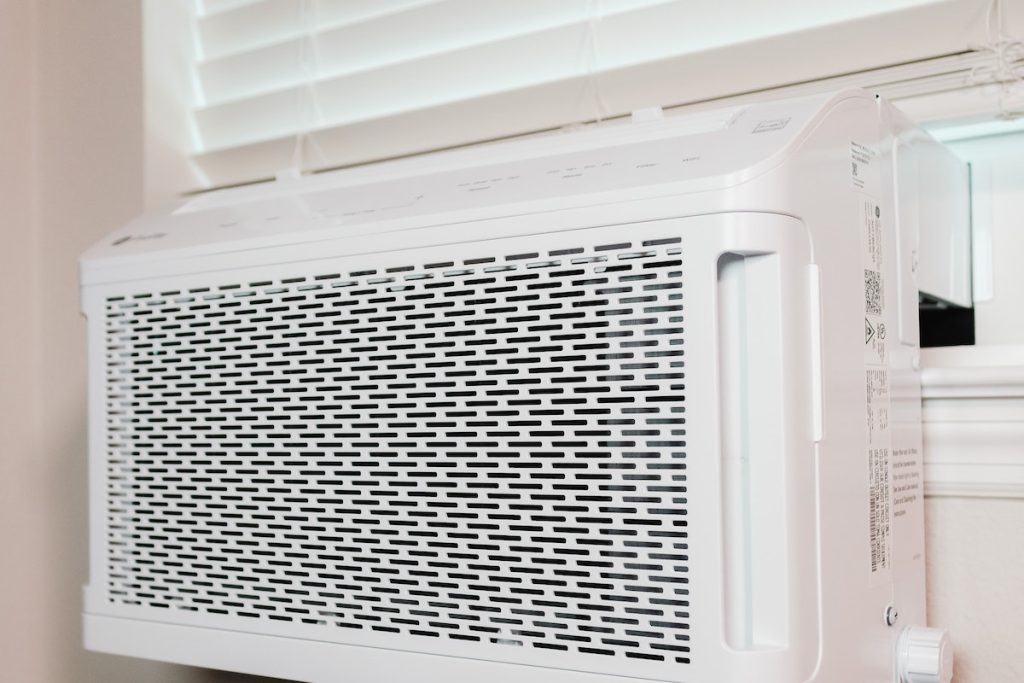Air conditioners play an indispensable role in our lives, ensuring a pleasant and comfortable indoor environment, especially during scorching summers. By regulating temperature and humidity, these cooling systems offer respite from the sweltering heat, allowing us to relax and focus on our daily tasks. However, amidst the soothing coolness they provide, we often encounter an undesirable and annoying side effect – excessive noise. AC noise can be a nuisance, disturbing peaceful living spaces and even impacting the overall performance of the cooling unit.
In this article, we delve into the reasons why is AC so loud, the potential consequences it may have on the unit’s functionality, and the steps you can take to mitigate or eliminate these disturbances, ensuring a serene and refreshing home environment.

10 Reasons Your AC Is Making Noise
Identifying the source of the noise and addressing these issues promptly can not only restore peace and quiet in your living space but also extend the lifespan and improve the efficiency of your air conditioner. For any complex repairs or concerns, it’s always best to seek the expertise of a professional HVAC technician.
1. Loose or Damaged Fan Blades
One of the most common reasons for noisy air conditioners is loose or damaged fan blades. Over time, these blades can become misaligned or bent, causing them to strike other components or the housing itself. The resulting noise may range from a rattling sound to a persistent banging noise. Regular maintenance and timely repairs can prevent this issue and keep the fan blades in optimal condition.
2. Faulty Motor or Compressor:
A malfunctioning motor or compressor can lead to various unsettling sounds coming from your AC unit. A faulty motor may produce a grinding or screeching noise, while a problematic compressor can create a loud humming or clicking sound. These components are critical to the proper functioning of your air conditioner, so it’s crucial to have them inspected and repaired by a professional if necessary.
3. Clogged Air Filters
When the air filters in your AC become clogged with dust and debris, they can restrict airflow, leading to whistling or wheezing noises. Regularly changing or cleaning the air filters can not only prevent these noises but also improve the efficiency and performance of your cooling system.
4. Refrigerant Leaks
Hissing or bubbling noises coming from your air conditioner might indicate refrigerant leaks. Low refrigerant levels can hinder the AC’s ability to cool your space effectively and may even cause damage to the compressor. Detecting and fixing refrigerant leaks should be left to HVAC professionals, as handling refrigerant requires expertise and proper equipment.
5. Debris or Obstructions in the AC Unit
Leaves, twigs, and other debris can find their way into the AC unit, causing rattling or buzzing noises. Regularly inspecting and cleaning the exterior of the unit can help prevent these noises and ensure proper airflow.
6. Malfunctioning Thermostat
A malfunctioning thermostat can lead to irregular cooling cycles and strange noises, such as clicking or constant running of the compressor. Calibrating or replacing the thermostat, if needed, can resolve this issue.
7. Loose or Worn-Out Components
AC units have various moving parts that may loosen over time or wear out with use. Loose or worn-out components can produce clanking or banging noises. Having your AC inspected by a professional can help identify and address these issues.
8. Faulty Fan Belt
A worn-out or damaged fan belt can cause a screeching noise when the AC is running. Replacing the fan belt is a relatively simple fix that can restore quiet operation.
9. Dirty or Worn-Out Bearings
If the bearings in the fan motor or blower assembly are dirty or worn out, they can create a humming or squealing noise. Regular maintenance and lubrication of these bearings can prevent noise-related problems.
10. Improperly Installed or Maintained AC Unit
Finally, an improperly installed or poorly maintained AC unit can lead to a range of noise issues. Ensuring proper installation and scheduling regular maintenance checks with a qualified HVAC technician can prevent many of these noise-related problems and keep your air conditioner running smoothly and quietly.

Different Types of AC Noises
Recognizing the different types of noises that your air conditioner may produce can help you diagnose and address potential problems early on. Regular maintenance, such as cleaning filters, tightening screws, and lubricating moving parts, can prevent some of these noises from occurring.
However, if you hear any unusual or persistent noises from your AC system, it’s best to have it inspected by a qualified HVAC technician. Timely intervention can prevent minor issues from turning into major malfunctions and ensure your air conditioner operates quietly and efficiently.
- Buzzing Noise: A buzzing noise from your air conditioner could indicate several issues. It may be due to loose components, such as screws or panels, causing vibrations. Additionally, electrical problems like faulty wiring or loose connections can create a buzzing sound. If the buzzing is coming from the outdoor unit, it could be related to the fan motor or the compressor. Addressing buzzing noises promptly is essential, as they may escalate into more significant problems if left unattended.
- Rattling Noise: Rattling sounds are often caused by loose or unsecured parts within the AC unit. These could be fan blades, refrigerant lines, or even debris stuck in the system. In some cases, a rattling noise may be an early sign of a failing compressor. Ignoring rattling sounds can lead to more severe damage to your air conditioner, so it’s crucial to investigate and fix the issue promptly.
- Squealing Noise: A high-pitched squealing noise is typically associated with issues related to the fan belt. A loose or worn-out fan belt may slip or get misaligned, creating this sound. If not fixed promptly, a squealing noise can lead to the belt breaking, resulting in the AC’s inefficient cooling and potential damage to other components.
- Grinding Noise: A grinding noise can indicate a severe problem within the air conditioner. It is often associated with issues in the motor or compressor bearings. When these bearings wear out or become dirty, they can produce a loud grinding sound. Continuing to run the AC with grinding noises can lead to further damage and might necessitate costly repairs.
- Whistling Noise: Whistling sounds are commonly caused by restricted airflow, often due to clogged air filters, blocked vents, or leaks in the ductwork. Proper airflow is crucial for efficient cooling and the overall performance of the AC system. Addressing whistling noises involves identifying and eliminating the source of the restriction, allowing your air conditioner to work optimally.
How To Fix Air Conditioner Noise?
Fixing air conditioner noise requires a combination of proactive maintenance and appropriate repairs. Here are practical tips and solutions to address common AC noise issues:
- Regular Maintenance and Cleaning: Regularly scheduled maintenance is crucial for keeping your air conditioner running smoothly and quietly. Clean or replace air filters every 1-3 months to prevent airflow restrictions and whistling noises. Keep the outdoor unit free of debris, such as leaves and twigs, to avoid rattling sounds caused by obstructions.
- Tightening Loose Components: Inspect the AC unit for any loose screws, bolts, or panels. Use appropriate tools to tighten these components and reduce buzzing or rattling noises caused by vibrations.
- Lubricating Moving Parts: Proper lubrication of moving parts, such as fan motors and bearings, is essential for minimizing squealing or grinding noises. Use manufacturer-recommended lubricants to keep these components running smoothly.
- Replacing Worn-Out or Faulty Parts: If you identify worn-out or faulty parts during inspection, consider replacing them promptly. Common components that may require replacement include fan belts, motor bearings, or damaged fan blades. Replacing these parts can prevent further deterioration and restore quiet operation.
- Ensuring Proper Installation and Alignment: If you’ve recently installed or relocated your AC unit, ensure it is correctly installed and aligned. Poor installation or alignment can lead to various noises, including buzzing, rattling, or grinding. Consult a professional HVAC technician to verify proper installation.
- Seeking Professional Assistance for Complex Repairs: Some AC noise issues may require specialized knowledge and tools to diagnose and repair. For complex problems like compressor or motor issues, refrigerant leaks, or electrical malfunctions, it’s best to seek professional assistance. HVAC technicians can accurately diagnose the problem and provide appropriate solutions to restore quiet operation.
- Noise Dampening Solutions: In certain situations, noise dampening solutions can be employed to reduce the impact of AC noise. For example, placing rubber pads under the unit or using acoustic barriers can help absorb vibrations and minimize noise transmission.
Remember, early detection and addressing AC noise issues promptly can prevent further damage and costly repairs. Regularly scheduled professional maintenance can also identify potential problems before they escalate. By following these practical tips and seeking professional help when needed, you can ensure your air conditioner operates quietly and efficiently, providing a peaceful and comfortable indoor environment.
Conclusion
Addressing AC noise issues promptly is vital for a peaceful indoor environment and optimal performance. Regular maintenance, tightening loose components, and replacing worn-out parts can help eliminate common noises. Seek professional help for complex repairs, ensuring safety and accurate diagnosis. Taking proactive measures and relying on experts will extend your air conditioner’s lifespan, prevent costly damage, and maintain a serene and efficient cooling system.


